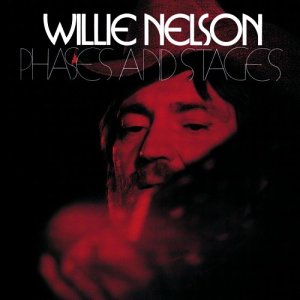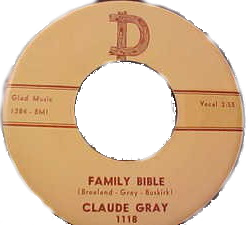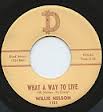Related Research Articles

Willie Hugh Nelson is an American musician, actor, and activist. The critical success of the album Shotgun Willie (1973), combined with the critical and commercial success of Red Headed Stranger (1975) and Stardust (1978), made Nelson one of the most recognized artists in country music. He was one of the main figures of outlaw country, a subgenre of country music that developed in the late 1960s as a reaction to the conservative restrictions of the Nashville sound. Nelson has acted in over 30 films, co-authored several books, and has been involved in activism for the use of biofuels and the legalization of marijuana.

Red Headed Stranger is the eighteenth studio album by American outlaw country singer Willie Nelson and released in 1975. After the wide success of his recordings with Atlantic Records, coupled with the negotiating skills of his manager, Neil Reshen, Nelson signed a contract with Columbia Records, a label that gave him total creative control over his works. The concept for the album was inspired by the "Tale of the Red Headed Stranger", a song that Nelson used to play as a disc jockey on his program in Fort Worth, Texas. After signing with Columbia, he decided to record the song, and arranged the details during his return to Austin, Texas from a trip to Colorado. It was recorded at low cost at Autumn Sound Studios in Garland, Texas. The songs featured sparse arrangements, largely limited to Nelson's guitar, piano and drums. Nelson presented the finished material to Columbia executives, who were dubious about releasing an album that they at first thought was a demo. However, Nelson had creative control, so no further production was added.

Shotgun Willie is the sixteenth studio album by Willie Nelson, released in 1973. The recording marks a change of style for Nelson, who later stated that the album "cleared his throat". When Nelson refused to sign an early extension of his contract with RCA Records in 1972, the label decided not to release any further recordings. Nelson hired Neil Reshen as his manager, and while Reshen negotiated with RCA, Nelson moved to Austin, Texas, where the ongoing hippie music scene at the Armadillo World Headquarters renewed his musical style. In Nashville, Nelson met producer Jerry Wexler, vice president of Atlantic Records, who was interested in his music. Reshen solved the problems with RCA and signed Nelson with Atlantic Records as their first country music artist.

Phases and Stages is the seventeenth studio album by Willie Nelson, which followed the moderate success of his first Atlantic Records release, Shotgun Willie. Nelson met producer Jerry Wexler at a party where Nelson sang songs from an unreleased album he had recorded in 1972. The single "Phases and Stages" was originally recorded the same year. Nelson re-recorded the album at Muscle Shoals Sound Studios in two days and Wexler produced it.

Yesterday's Wine is the thirteenth studio album and a concept album by country singer Willie Nelson. Nelson had been recording for RCA Victor since the early 1960s, and had no significant hits. By 1970, his recordings had reached mid-chart positions. Nelson lost the money from his song-writing royalties by financing unsuccessful concert tours that were generally unprofitable. In addition to problems with his music career, Nelson had problems in his personal life. He had divorced his wife, Shirley Collie, and his Tennessee ranch had been destroyed by a fire.

The Party's Over and Other Great Willie Nelson Songs is the sixth studio album by country singer Willie Nelson.

Country Willie: His Own Songs is the third studio album by country singer Willie Nelson. This was Nelson's third album, his first for RCA Victor.

...And Then I Wrote is the debut studio album by country singer Willie Nelson, recorded during August and September 1962 and released through Liberty Records.

The Family is Willie Nelson's touring and recording group. Nelson, who did not manage through the 1960s to succeed as a singer, retired after the failure of his 1971 album Yesterday's Wine. The following year, he returned from retirement rejuvenated by the burgeoning music movement of Austin, Texas.

Bobbie Lee Nelson is an American pianist and singer, the older sister of Willie Nelson and a member of his band, Willie Nelson and Family. Her grandmother taught her to play keyboards at age five with a pump organ, and after successful appearances at gospel conventions held in Hillsboro, Texas, her grandfather bought her a piano.

"Night Life" is a song written by country music singer-songwriter Willie Nelson. Nelson was inspired to write the song during one of his trips from his home in Pasadena, Texas, to his work, singing at the Esquire Ballroom in Houston.
The Western Express was a country-music radio show transmitted by KCNC in Fort Worth, Texas. The show started in 1947, hosted by disk jockey Charlie Williams. In 1956, the station later hired Willie Nelson, a then struggling singer-songwriter who previously worked on different radio stations. Nelson hosted the three-hour-long show singing his original songs, taking calls and playing records.

"No Place for Me" was the debut recording song of country singer-songwriter Willie Nelson. Nelson recorded the song while working as a disk jockey at KVAN in Vancouver, Washington, using a studio of the radio. Through a DJ he met during his time working on the radio in Texas, he contacted Starday Records, sending the tapes over to the label.

"Family Bible" is a song written by country music singer-songwriter Willie Nelson. Nelson began writing the song in 1957, while he enjoyed success as a disc jockey in KVAN, in Vancouver, Washington. After being denied a raise by the station, he moved to Houston, Texas. Due to financial issues he sold the song to Paul Buskirk.

"Mr. Record Man" is a song written by country music singer-songwriter Willie Nelson. After writing the song, Nelson moved to Houston, Texas, where due to his financial issues, tried to sell it to Larry Butler. Butler, who rejected to buy the song, employed Nelson instead. After his original songs turned into a hits for other artists, Nelson was signed as a recording artist by Liberty Records.
"Man With the Blues" is a song by country music singer-songwriter Willie Nelson. After moving to Fort Worth, Texas, and quitting the music business for a year, Nelson returned to perform on the KCUL's Country Hoedown. Through a booking agent, he was signed as a recording artist by D Records.

"Willingly" is a duet by American country music singer Willie Nelson and Shirley Collie, produced by Joe Allison during Nelson's third session for Liberty Records. Released in March 1962, the album reached number ten on Billboard's Hot Country Singles.

"What a Way to Live" is a song written by country music singer Willie Nelson. He recorded the song on his second session with D Records, after moving to Houston, Texas. Produced by Bill Quinn, it was cut at Gold Star Studios in March 1960.

"The Party's Over" is a song written and recorded by American country music singer Willie Nelson during the mid-1950s. After arriving in Houston, Texas, Nelson was hired to play for the Esquire Ballroom band, where he would be allowed to close the shows singing the song. Guitar instructor and Nelson's friend Paul Buskirk forwarded the song to singer Claude Gray, who recorded the original version of the song, released as "My Party's Over" in 1959.

"I Never Cared For You" is a song written by country music singer Willie Nelson. Nelson recorded the song during his stint with Monument Records, and eventually became his only single released by the label.
References
- Billboard staff (1959). "Reviews of New Pop Records". Billboard. Nielsen Business Media, Inc. 71 (29). ISSN 0006-2510.
- Bradley, Andy; Wood, Roger (2010). House of Hits: The Story of Houston's Gold Star/SugarHill Recording Studios. University of Texas Press. ISBN 978-0-292-78324-9.
- Myers, Judy (1969). "Willie Nelson: His Own Story, in his own words". Country Song Roundup. Charlton Publications Incorporated.
- Nelson, Willie (2003). The Facts of Life and Other Dirty Jokes. Random House. ISBN 978-0-30752-320-4.
- Nelson, Willie; Bud Shrake; Edwin Shrake (2000). Willie: An Autobiography. Cooper Square Press.
- Patoski, Joe Nick (2008). Willie Nelson: An Epic Life . Hachette Digital. ISBN 978-0-316-01778-7.
- Richmond, Clint (2000). Willie Nelson: Behind the Music. Simon & Schuster. ISBN 978-0-671-03960-8.
- Thomson, Graeme (2012). Willie Nelson: The Outlaw. Virgin Books. ISBN 978-0-75351-184-8.
- Plantation Records (1976). The Longhorn Jamboree Presents Willie Nelson & His Friends (booklet). Willie Nelson. Shelby Singleton Corporation. PLP-24.